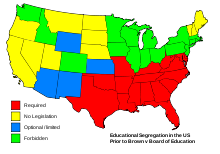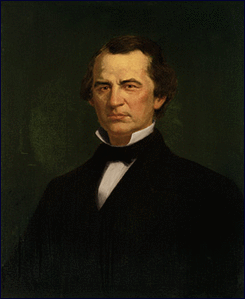“Punting the Pundits” is an Open Thread. It is a selection of editorials and opinions from around the news medium and the internet blogs. The intent is to provide a forum for your reactions and opinions, not just to the opinions presented, but to what ever you find important.
Thanks to ek hornbeck, click on the link and you can access all the past “Punting the Pundits”.
Follow us on Twitter @StarsHollowGzt
Emily Bell: Jill Abramson’s ouster shows women that we still must be more than good
Women’s fury over the New York Times editor’s firing stems from what we know: that excellent performances are never enough
On Tuesday afternoon, the executive editor of the New York Times, Jill Abramson, left the building with little fanfare. She had, apparently, been stripped of her title by publisher Arthur Sulzberger Jr because of what he called, in addressing the staff and anointing her successor, an issue with management.
That successor, Dean Baquet, started the day as Abramson’s deputy and ended it as the first-ever African American to hold the coveted role as top editor of the Gray Lady. But the public celebration of his success was short-lived – because he replaced the first-ever woman to hold that role, and women in media thought they knew why.
The fury of women journalists who identify with Abramson stems from what we know: that excellent performances are not enough. Women must be completely different from the men they replace (or who replace them), apparently – they must adapt to the power they are briefly allowed to hold without transgressing the gender roles they aren’t allowed to escape.
David Sirota: Is Journalism Losing Its Nerve?
When I went into journalism, one of the first things I was told as a freshman is that journalism is different from stenography. It is supposed to be-or at least has been-about using rights granted under the First Amendment to be a check on government and corporate power.
Yet, the hedge in that last sentence is deliberate-and appropriate. That’s because a new survey from the Indiana University suggests things are fast changing in the news industry-and not for the better.
The latest in 42 years worth of surveys of journalists, this one polled more than 1,000 reporters in the latter half of 2013. That timeframe is significant-it was right when revelations about the NSA’s mass surveillance were being published.
You might think such an historic time period in the annals of journalism would only strengthen reporters’ belief in the necessity of responsibly-but fearlessly-publishing information, even if the powers that be do not authorize such publication. Instead, it seems the exact opposite has happened.
Michael Powell is the son of Gen. Colin Powell. The elder Powell knows a thing or two about war. He famously presented the case for invading Iraq to the United Nations, on Feb. 5, 2003, based on faulty evidence of weapons of mass destruction. He calls that speech a painful “blot” on his record. So it is especially surprising when his son threatens “World War III” on the Obama administration.
Michael Powell is the president of the NCTA, the National Cable and Telecommunications Association, which is the cable industry’s largest lobbying group. He is also the former chairperson of the FCC, the Federal Communications Commission. His target: net neutrality. The battleground is in Washington, D.C., inside the FCC’s nondescript headquarters. The largest Internet service providers-companies like Comcast, Time Warner Cable, AT&T and Verizon-are joining forces to kill net neutrality. Millions of citizens, along with thousands of organizations, companies, artists and investors, are trying to save it.
Eugene Robinson: Clinton Gets the GOP Treatment
Republican panic at the prospect of facing Hillary Clinton in the 2016 presidential race has suddenly reached Godzilla-nearing-Tokyo proportions.
The election is more than two years away, and Clinton hasn’t even decided whether to run. But none of this seems to matter to the GOP strategists and spinmeisters who are launching the whole arsenal at her-smears, innuendo, false charges. Already, they’ve moved beyond distorting her record to simply making stuff up.
As these damp squibs clatter harmlessly to the ground, it’s useful to remember that Clinton has seen it all before. And I mean all. Anyone who thinks she’ll be rattled or intimidated hasn’t been paying attention the past few decades. [..]
If Clinton should get the nomination, her Republican opponent-no matter who it is-would be no pushover. But the possibility of electing the first woman as president would likely stoke the enthusiasm of Democratic voters to the point where the party’s structural advantages-overwhelming support among minorities and women-came into play. Clinton might win big.
Hence all the premature mudslinging, which reeks of desperation. Republicans hear the sound in the distance. They feel it in their bones. Stomp. Stomp. Stomp.
Jane E. Kirtley: Why the US constitution gives you the right to know lethal injection’s secrets
The death penalty has always been subject to public oversight, and for good reason. It’s called the First Amendment
In the panic and fear that followed the 9/11 attacks, the US government went into ultra-secret mode. In the name of protecting national security, prosecutors asked judges to close criminal proceedings involving terrorism, even though they had always been presumed to be open to the public – and the press – under the First Amendment. Many judges complied.
But in 2002, Judge Damon J Keith of the US Court of Appeals in Detroit ruled that secret deportation proceedings in so-called “special interest” cases involving alleged terrorists could not be conducted in secret. The Bush administration argued that open hearings would reveal sensitive intelligence information and compromise national security. The government further contended that these administrative proceedings are not technically part of the judicial system – and so should not be subject to the First Amendment right of access. [..]
Although the high court has not yet ruled explicitly that these rights extend to executions, history and experience support the argument. The death penalty – the ultimate expression of the state’s power over human life and death – has always been subject to public oversight, and for good reason. The government executes prisoners in the name of the public. To have confidence in that process, the public must have as much information as possible about it. We should know how officials treat those who are paying the ultimate penalty. We cannot call ourselves a democracy if we cede this kind of activity to a secretive government in blind faith and without question.
Sadhbh Walshe: Want to curb binge drinking? End the focus on laws and look at culture
The sooner we all start drinking like Italians, the better: despite liberal regulations, the way they drink in moderation reduces serious risk
The summer before I went to university in Dublin, I was in a state of high anxiety – not about the prospect of leaving home or the coming course work so much as my ability to drink alcohol in any quantity. To my young mind, being able to drink a lot was as important a part of college life as being able to write a good paper. So I put in a lot of effort – to drinking – until I was able to knock back pints with the best of my new classmates.
This kind of blind obligation to binge drink is exactly the kind of potentially dangerous boozing that’s led to a surge of new warnings from health experts. According to a report released this week by the World Health Organization (WHO), fully 16% of drinkers worldwide engage in heavy episodic (or binge) drinking – the most harmful form.
WHO is urging governments to take aggressive steps to address the problem by raising taxes on alcohol sales, raising minimum drinking ages, regulating sales and so on. But if regulations alone were enough to reduce binge drinking, then countries with stricter rules would have better drinking habits. Except that isn’t always the case.

 The obligatory-
The obligatory-


Recent Comments